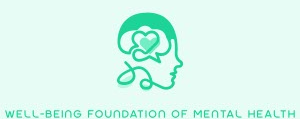AGEING AND GOOD HEALTH
Although genetics play a crucial role in the health of a younger person, it has been found that as a person grows older, genetic factors become much less significant. There is scientific evidence that less than half of the characteristics of ageing are genetically based. For those who survive to age 80 and beyond, the genetic factor becomes even less influential.
This means that individuals can increase their chances of enjoying good physical and mental health throughout their lives by the way they take care of themselves. What steps can people take to insure and enhance the quality of their lives now and well into the future?
- It is important to sustain a network of social contacts. Staying active in the community is an important link to maintaining a network of emotional support. Evidence suggests that this emotional support may have the result of lowering stress-induced hormones. When high blood levels of these hormones are present over a period of time, the immune system may be negatively affected.
- As much as possible, individuals at every age should participate in physical exercise. Regularly taking part in pleasurable recreational activities helps to maintain muscle coordination and strength. It has also been found that lack of exercise in older people actually affects the brain and can be linked to a decline in memory.
- Things that stimulate the mind such as reading, taking classes, travel — even playing strategy games like chess or solving puzzles — can be very helpful in maintaining mental agility.
- Cultivating an attitude of resiliency is an important key to successful ageing. The ability to prevail through times of unexpected or traumatic change requires a willingness to accept and adapt to stressful situations. Helpful resources within a community often include cultural, psychological, spiritual, religious, economic, physical, and/or social avenues that the individual may seek out and turn to for assistance and support.
- Older people should be encouraged to do as much as they can for themselves. Well-meaning friends and relatives who routinely take on tasks that older people are still capable of performing are actually hindering rather than helping. Too much functional assistance can put the older person at greater risk for physical and mental decline.
- Older people need to maintain an active voice in decision-making and have the right to participate in all decisions that affect them. Maintaining a sense of control over one’s living circumstances is a crucial component of successful ageing.
- Contributing to society through productive activities is another way of adding quality to one’s older years. Acting as a community volunteer, mentoring younger workers within one’s field of expertise, involvement with child care, teaching — there are countless ways in which an older person can “give back” from their years of experience thereby enriching their families, communities and environments.
Adapted from Good Habits Outweigh Genes As Key to a Healthy Old Age,
by Jane E. Brody, published in The New York Times, February 28, 1996.
